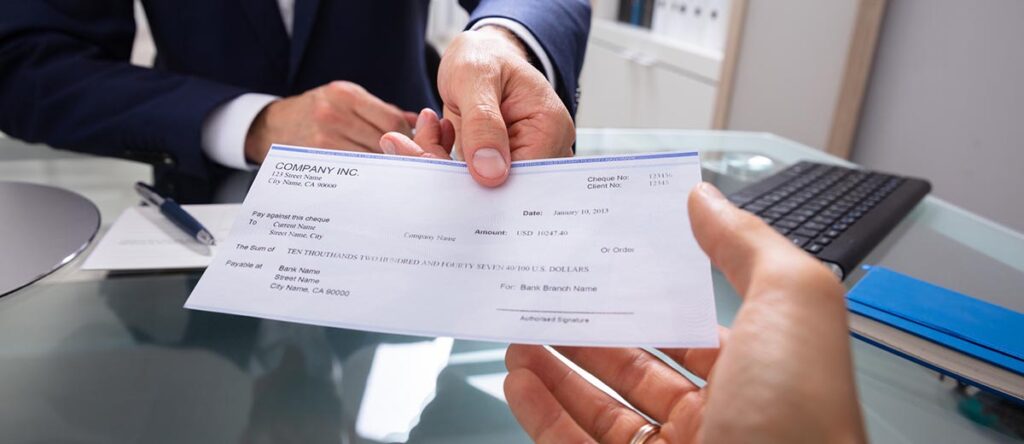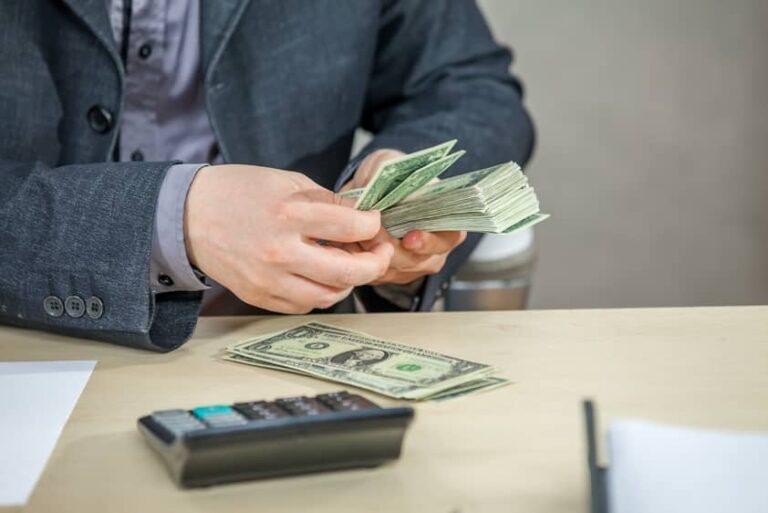Are you stuck in a situation where you’re unable to bank or deposit a check immediately into your bank account? Maybe your friend is unable to deposit his own check for whatever reasons what options do you have?
If you’re in this situation, you’re probably wondering if you can deposit someone else’s check in your account.
There is a lot to this topic, so keep reading to be sure you have all you need to deposit a check on someone else’s behalf and everything you need to clear all your doubts regarding this issue.
Can you deposit someone else’s check in your account?
The answer is Yes, you can deposit someone else’s check in your account. However, the payee needs to endorse the check over to you. In other words, all they need is to “sign the check over to you” by writing “Pay to” on the back of the check and signing it.
Such check deposits are accepted by the majority of large banks in the US, such as Bank of America, Chase, Wells Fargo, TD Bank, and other financial institutions.
They all have their own set of policies for how they go about doing this. There are no legal ramifications if you’re willing to deposit the check into your account.
While somebody other than you is cashing the check some banks will require that you have your signature as well as the signature of the person to who the check is written, others require the payee to provide a valid photo id proof for cashing the check.
If the check says ‘for deposit only’ or has the payee’s signature on it, you shouldn’t have any issues depositing it for someone else. Its good to note that because individual banks will set their own policies, this will be based on the bank in question.
Depositing a Third-party Check
A third-party check is a name given to the cheque that you’ll deposit into your account.
It was made out to your buddy, but he endorsed it to your name, allowing you to deposit it into your bank account without any problems.A number of other variables are taken into consideration when determining whether your application will be accepted or refused by your bank.
Can you Deposit a Check for Someone Else?

Frequently Asked Question
Can you deposit someone else’s check in your account through ATM?
Third-party checks are not permitted to be deposited at ATMs. You will get an error warning and a check back.
Due to fraud, banks no longer accept 3rd party checks as there’s no proof that the person cashing the check is the intended recipient or if the check was stolen.
Can you deposit someone else’s check in your account at Bank of America?
Is it possible to deposit a check addressed to someone else into a Bank of America account? Well, It’s advisable to call and enquire at your local Bank of America if you are able to do so.
Third-party checks were formerly accepted at my Bank of America in Seattle, but they no longer are.
It’s totally legal to have someone else endorse a check for you, but banks can choose to accept, hold, or deny them.
Bank of America, as well as virtually every other financial institution in the United States, will need verification that the legitimate payee signed the check before it can be honored.
That is, the person’s identification card must bear his or her signature in order for it to match the signature on the check.
Can you deposit someone else’s check in your account at chase?
It’s possible, yes. For deposits, you must first endorse the check, then write FOR DEPOSIT ONLY on it.
The Payee must accompany you to the bank, as well as have a valid state ID on him or her.
Once they established that you are the true account holder, the payee is authentic, and the check was made out to him, they had no problems depositing it. You should, however, contact your bank to confirm their rules.
Can you deposit someone else’s check in your account online?
Yes, but you’ll need to know the routing number and account holder’s name. You can also ask the check depositor if you’re unsure if they’ve already deposited the check into their account.
This doesn’t mean it’s the best option. It’s more convenient than handing over cash to a bank teller, but there are still some drawbacks. For instance, most banks require a minimum deposit of $100 to open an account. This means that a cashier would have to count out $200 before you even see your account balance.
You’d also have to wait until a teller is available to open the account and hand over the cash. If your bank’s ATMs aren’t available, you could be waiting for a long time before you access your account.
Depositing Someone Else’s Check Online
To deposit someone else’s check into your bank online, you’ll need to know the following information:
- The payee’s name
- The check number
- The date of the check
- The check amount
How to Deposit Someone Else’s Check Online
Depositing someone else’s check is as simple as accessing your bank’s website and logging in to your account. Here’s how:
Log in to your bank’s website. Click on the “deposit” tab and select the type of deposit you want to make. Select “check” and click on “continue.”
Select the check you want to deposit. Next, select the routing number, the account holder’s name, the date of the check, and the check amount. You’ll also need to select an account type.
Fill in your address and the type of account you’re opening. You’ll be prompted to enter a valid email address and your password.
Once you’ve entered your information, click on “continue” to complete the transaction.
How to Receive Someone Else’s Check
In order to receive someone else’s check, you’ll need to know the following information:
The routing number and the account number of the person who made the check.
You’ll also need to know the payee’s name, the check number and the date.
Enter the check number and date you’ve received. You’ll also be requested to enter your email address and password.
Once you have the information, click on “continue” to complete the transaction.
What if the Payee Changes Their Mind?
If the person making the check changes his or her mind, you’ll need to contact your bank. You’ll be able to speak to a live representative if you contact your bank within 60 days. You’ll be charged a fee for any returned checks.
What If Someone Deposits a Check Into My Account?
The recipient of the check will have the right to stop the deposit. If the recipient stops the deposit, the check will be returned to the depositor.
You may also have the right to refuse to accept the check. You may ask the payee to issue a new check and make a refund. You may also file a complaint with the Better Business Bureau.
What Is the Best Way to Get Rid of a Check?
A check is a negotiable instrument, which means you may be entitled to money from the payee. This is why getting a check back in a timely manner is important.
If the payee doesn’t issue a new check, you’ll have to return the check to the bank. The bank may charge a fee for the returned check, which will be deducted from your account.
If the payee hasn’t issued a new check, you may be able to get a check re-issue company to write out a replacement check. This will cost more than a traditional bank because the cost will include the re-issuance fee and the cost of the replacement check.
How to Stop Someone From Depositing a Check
There are several ways to prevent a person from making a deposit into your account. You can:
- Contact your bank immediately. Tell them that the check was not authorized.
- File a police report.
- File a civil lawsuit.
- Contact the Better Business Bureau.
- Call Your Bank Immediately to Report Someone Depositing a Check
Many banks are required to contact the depositor if a check is deposited into their account. If the bank doesn’t contact you, it’s considered a theft. In many cases, this may only be a problem if your bank is holding funds that are meant to be given to you. In other cases, the bank may try to collect the money and send it to the rightful owner.
It may not be a good idea to ask the person making the check to give you the check back. They might think it’s a joke. Instead, contact your bank right away.


![Is Instafeet Safe & Legit? [Instafeet Review 2024]](https://onlineincomezeal.com/wp-content/uploads/2021/06/Is-Instafeet-Safe-Legit-Instafeet-Review-May-2021-768x406.jpg)



